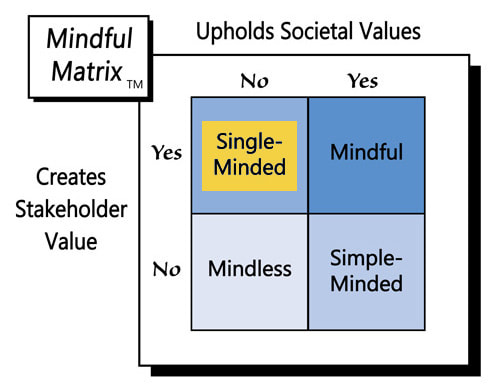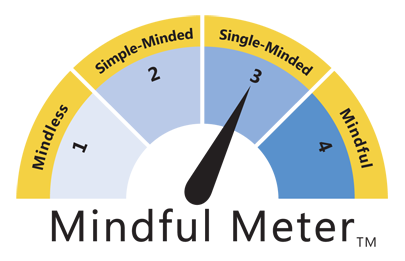Brands like Häagen-Dazs and Ben & Jerry’s have made decadent ice cream for decades, but even they have not capitalized on the concept of uninhibited indulgence as much as Boston-based Vice Cream. As the company name implies, its ice cream isn’t just good; it’s sinful. Other elements of the company’s brand support the unusual positioning.
Most notably, the product itself is very ‘full-bodied.’ Pictures and descriptions on Vice Cream’s website illustrate various flavors overflowing with add-ins such as “stacks on stacks of mint-chocolate coins,” “rich peanut butter ice cream mixed with chopped toffee bars,” and “chunks of chocolate chip cookie dough, salted caramel truffles, and thick swirls of chocolate fudge and caramel.”
As you might imagine, those kinds of ample, rich ingredients add up to some sizeable, undesirable numbers on the ice cream’s nutritional labels. For instance, one particular flavor boasts the following stats per half cup serving: 270 calories, 15g of fat, 10g of saturated fat, 50 mg of cholesterol, and 30g carbohydrates. By the way, I wonder how many people can eat just a half cup of ice cream; I can’t.
While those “nutrition” numbers are certainly high, they aren’t unusual for indulgent desserts. For instance, a small Brownie Batter Blizzard at Dairy Queen has 440 calories, 14g of fat, and 9g of saturated fat. Those stats are puny, however, compared to desserts at the Cheesecake Factory, where a piece of Oreo Dream Extreme Cheesecake has 1,490 calories, 53g of saturated fat, and 162 carbs.
If Vice Cream isn’t setting any records for nutritional negligence, what makes it so sinful? Well, beyond its product composition, the company has decided to play upon the idea of immorality with other aspects of its branding, such as its product names and promotion. More specifically, Vice Cream has opted for the classic low-brow strategy—serving up sex, with a side of profanity.
The company’s 'sex-sells' approach starts with the names of its ice creams, which may seem innocuous, until you start to unpack and compare them. For instance, there’s “Toffee Wife,” a play on the sexist term “trophy wife,” and “Afternoon Delight,” homage to the Starland Vocal Band’s 1976 hit by the same name, which was all about making love. There’s also “Breakfast in Bed,” a flavor name that seems benign until you interpret it in context with the other monikers and you see some of the company’s additional branding.
Vice Cream’s most blatant sex appeal is through a promotional video, which is the first thing you see on the firm’s homepage and which is easily found on YouTube. The slightly less than two-minute spot features an attractive young woman, wearing a short black dress and high heels. The actress’s words and actions exude sensuality, while an enticing instrumental arrangement plays in the background.
Granted, the ad doesn’t rely exclusively on sex appeal. There’s also a heavy dose of humor that seems like an attempt to offset some of the strong sexual innuendo. For instance, the main premise of the spot is that although consumers can’t get a free sample of Vice Cream, they can call the company’s “vice-line” and listen to “virtual tasters” describe in “sumptuous detail what it’s like to eat any of our delicious flavors.”
Of course, the unambiguous reference is to phone-sex, but the silliness of listening to others sensually describe ice cream downplays that allusion. Vice Cream also tries to take the edge off the sexual imagery by showcasing one rather unappealing virtual taster, “Gary,” who gets dropped by a caller who’s not aroused by his less-than-sexy product description.
Meanwhile, there’s also a smattering of profanity throughout the promotion, as the main actress lets slide “son of a [bleep] that’s good” and “F[bleep]’n Gary.” The spot censors the specific expletives, but it’s easy to understand what she’s saying.
What should we make of Vice Cream’s unabashed approach to confectionery marketing? On one hand, the company can be commended for not putting on pretenses. Yes, there are a handful of companies striving to make 'healthy' ice cream, like Halo, but ice cream is an indulgence, and Vice Cream calls it what it is. People tend to appreciate candid communication—even if it’s a little negative, at least it’s honest.
On the other hand, Vice Cream makes gratuitous use of sex to sell its products. Unlike a honeymoon vacation or Viagra, there’s no natural connection between ice cream and sex. As many other unscrupulous companies have done, Vice Cream tries to take the feelings people have for sex and, by way of classical conditioning, transfer them to its product.
Appetites for food and desires for sex are two separate things that can be disturbing, if not dangerous, to combine. Such an artificial pairing could be especially hazardous for adolescents, who, amid surging hormones and ravenous hunger, have enough to handle separately for each biological and physiological drive.
The addition of profanity only makes matters worse, particularly when one considers that anyone with an internet connection, from nine to ninety, can see Vice Cream’s ad. Users don’t need to verify that they’re 18 or older, for instance, to enter the company’s website or to watch the ad on YouTube.
Some may argue, “But the ad is supposed to be funny.” That may be true, but couching an ad or anything else in humor doesn’t cover-up the unseemly content. The sexualization and profanity are still easily seen and heard. To think that the humor makes them okay is like believing you can call someone a nasty name, then quickly disclaim, “I was just joking.”
Vice Cream looks delicious and probably tastes great too. Those positives likely explain most of the company’s rapid growth and early success. It’s okay for people to indulge in a decadent dessert every once in a while, but it’s never okay for companies to use sex gratuitously to sell products. For this reason, Vice Cream’s ingredient list also includes “Single-Minded Marketing.”
Learn more about the Mindful Matrix and Mindful Meter.
Check out Mindful Marketing Ads and Vote your Mind!




 RSS Feed
RSS Feed